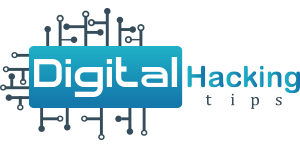10 Ingenious Digital Hacking Tips You Need to Know Today

Digital hacking has become a pervasive threat in today’s interconnected world. From personal information theft to financial fraud, hackers are constantly looking for vulnerabilities to exploit. In this article, we will explore ten ingenious digital hacking tips that can help you protect yourself and your digital assets. By implementing these strategies, you can significantly reduce the risk of falling victim to cybercriminals. Let’s dive in!
Table of Contents
1. Introduction
In this fast-paced digital era, staying safe online is more important than ever. Digital hacking involves unauthorized access to computers, networks, and personal devices to steal sensitive information or disrupt operations. It’s crucial to understand the significance of digital security and take proactive measures to safeguard yourself from potential threats.
2. Understanding Digital Hacking Tips
Digital hacking refers to the exploitation of vulnerabilities in computer systems, software, or networks to gain unauthorized access or manipulate data. Hackers use various techniques, such as malware, phishing, social engineering, and brute force attacks, to compromise security. It is essential to stay informed about the latest hacking methods to protect yourself effectively.
3. Importance of Digital Security
In a world where personal and financial information is increasingly stored online, ensuring digital security is paramount. The consequences of a successful hacking attempt can be severe, leading to identity theft, financial loss, or even reputational damage. By implementing robust security measures, you can mitigate these risks and maintain peace of mind while navigating the digital landscape.
4. Strengthen Your Passwords

One of the simplest yet most effective ways to enhance your digital security is by using strong passwords. Avoid common and easily guessable phrases or words. Instead, create complex passwords consisting of a combination of uppercase and lowercase letters, numbers, and special characters. Furthermore, ensure you use unique passwords for each of your online accounts.
5. Enable Two-Factor Authentication
Two-step verification (2SV) provides an additional level of protection to your online accounts, enhancing their security. It requires you to provide a second verification factor, such as a unique code sent to your phone, in addition to your password. Enabling 2FA significantly reduces the chances of unauthorized access, even if your password is compromised.
6. Keep Your Software Updated To Avoid Digital Hacking Tips
Regularly updating your software, including operating systems, applications, and antivirus programs, is crucial for maintaining a secure digital environment. Frequently, software updates encompass essential security patches designed to resolve identified vulnerabilities. By keeping your software up to date, you can prevent hackers from exploiting outdated or vulnerable software components.
7. Be Wary of Phishing Attempts To Avoid Digital Hacking Tips
Phishing is a common hacking technique where attackers impersonate legitimate entities to trick individuals into revealing sensitive information. Be cautious when clicking on links or opening attachments in emails, especially from unknown sources. Look out for signs of phishing, such as misspelled URLs, grammatical errors, or suspicious requests for personal information.
8. Use a Virtual Private Network (VPN)
A Virtual Private Network (VPN) establishes a secure and encrypted link between your device and the internet, ensuring enhanced privacy and protection. By using a VPN, you can protect your online activities from prying eyes and potential hacking attempts. VPNs are particularly useful when connecting to public Wi-Fi networks, as they ensure your data remains private and secure.
9. Secure Your Wi-Fi Network
Securing your Wi-Fi network is essential to prevent unauthorized access to your internet connection and devices. Change the default administrator password of your router, use strong encryption protocols, and disable remote management features. Additionally, consider enabling a guest network for visitors to keep them separate from your primary devices.
10. Regularly Backup Your Data To Stay Safe from Digital Hacking Tips
Backing up your data is crucial in the event of a successful hacking attempt or data loss due to hardware failure. Regularly create backups of important files and store them in secure locations, such as external hard drives or cloud storage services. This ensures you can recover your data even if it is compromised or lost.
11. Be Cautious with Social Media Sharing
It is important to exercise prudence when disclosing personal information on social media platforms. Avoid oversharing sensitive details, such as your address, phone number, or travel plans. Review your privacy settings and limit the visibility of your posts to trusted individuals. Cybercriminals often exploit publicly available information to launch targeted hacking attacks.
12. Educate Yourself about Common Digital Hacking Tips
Stay informed about common hacking techniques and tactics employed by cybercriminals. Understanding methods such as ransomware, keylogging, or social engineering can help you recognize potential threats and take appropriate precautions. There are numerous resources available online to enhance your knowledge about digital security.
13. Use Antivirus and Firewall Software
Installing reputable antivirus and firewall software on your devices is vital for detecting and preventing malware infections. These security tools continuously scan your system for potential threats and provide real-time protection against viruses, trojans, and other malicious software. Regularly update the software to ensure optimal performance and protection.
14. Conclusion
As technology continues to advance, so do the methods employed by hackers. Safeguarding your digital presence is a continuous endeavor that demands constant attentiveness and proactive actions.. By implementing the ten ingenious digital hacking tips outlined in this article, you can significantly enhance your digital security. Remember to strengthen your passwords, enable two-factor authentication, keep your software updated, be cautious of phishing attempts, use a VPN, secure your Wi-Fi network, regularly backup your data, be mindful of social media sharing, educate yourself about hacking techniques, and use antivirus and firewall software. Stay safe and protect what matters most in your digital life


